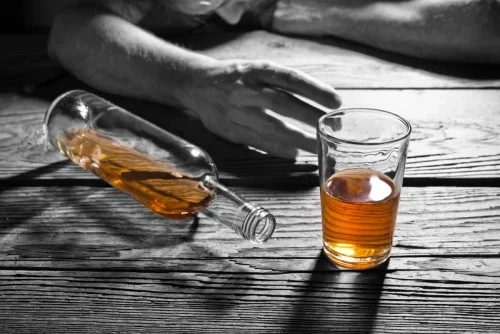Loving Someone with an Addiction: What You Can Do to Help
Not setting boundaries will enable your loved one’s addiction to continue. When we truly love an addict, we need to change our own behavior, so that we are helping the addiction—theirs and our own—to stop. A first step toward this vitally important goal is to recognize, establish, and maintain boundaries that hold everyone involved accountable for their own actions.
Loving an Addict, Loving Yourself: The Importance of Setting Boundaries
For example, if your loved one passes out in the yard and you carefully help them into the house and into bed, only you feel the pain. The focus then becomes what you did (moved them) rather than what they did (drinking so much that they passed out outside). Often, in trying to “help,” well-meaning loved ones will actually do something that enables someone dependent on alcohol to continue along their destructive paths. Make sure that you are not doing anything that bolsters their denial or prevents them from facing the natural consequences of their actions. What might seem like a reasonable expectation in some circumstances might be totally unreasonable when it comes to someone with an addiction.
What Is The Primary Cause Of Addiction?

Addiction is a chronic, relapsing disease, meaning that it is a normal part of the recovery process. A lapse in recovery is a short return to substance use. When referring to a sober personality, it generally means the opposite of drunk.
- Any action I take from a place of fear or confusion, or in response to one of his betrayals or lies, gets flipped around on me so I end up the perpetrator.
- It can’t be an ultimatum or a strategy, it has to be a reality of what you’re prepared to do.
- Yet since love addiction isn’t an official diagnosis, you won’t find it in the DSM-5.
- Celebrate each step forward, no matter how small, and remind your partner of their resilience and strength.
Cool gifts for Dad he’ll love this Father’s Day
Communicate your boundaries clearly and consistently, emphasizing that they are not meant to punish or control your partner, but to safeguard your own mental and emotional health. Boundaries can range from establishing limits on substance use within the home to outlining expectations for treatment and therapy participation. Stick to your boundaries, and seek support if you find them being repeatedly crossed.
Loving an Addict, Loving Yourself: The Top 10 Survival Tips for Loving Someone With an Addiction Kindle Edition
Keep your hopes up, as substance use disorder is known as a “good prognosis disorder” in that the majority of people can and do recover. Living with other people always calls for balance and understanding to create a safe and harmonious household. When it comes to living with someone with an addiction, though, such goals may be a bit more challenging. We are driven to find solutions to problems and find closure for circumstances that generate emotional distress.
Another rainy day, watch for flooding

Eventually, I made it to the next day, and the next after that. A typical day in rehab consisted of early mornings followed by long hours of one-on-one counselling and group therapy sessions, each designed to challenge the deepest parts of ourselves. All of my beliefs and understandings, contrived or otherwise, were scrutinized skilfully and painfully. The shakes, the sweats and the night terrors that clawed at my sanity. I started to see glimpses of the person I could be, buried beneath the layers of self-loathing and regret. But if pervasive thoughts about a particular person, or the idea of love in general, start to negatively affect your job, schoolwork, sleep, or any other areas of your life, that may pose some cause for concern.
Individualized, evidence based treatment, to fit your needs.

Dye explains that intensive workshops may also be helpful, such as multi-day survivor workshops or other workshops that cultivate healthy behaviors around love. I’m barely talking to him because I’m loving an addict so over everything. Part of me fantasizes about having a decent, normal life down the road without him. He’s trying to get on my good side with cheap talk, but I just don’t have it in me anymore.
Ways to Help When Loving Someone With an Addiction
Loving the Addict While Hating the Addiction
- According to the National Institute on Drug Abuse, addiction is a chronic brain disease characterized by compulsive drug seeking and use despite negative consequences.
- Loving an Addict, Loving Yourself presents a dramatically fresh approach to help you get off your loved one’s roller-coaster chaos of addiction, maintain your own sanity and serenity, and live your best life.
- You have to outline what will happen if the person comes home intoxicated, as an example.
- It’s OK to make choices that are good for your own physical and mental health.
